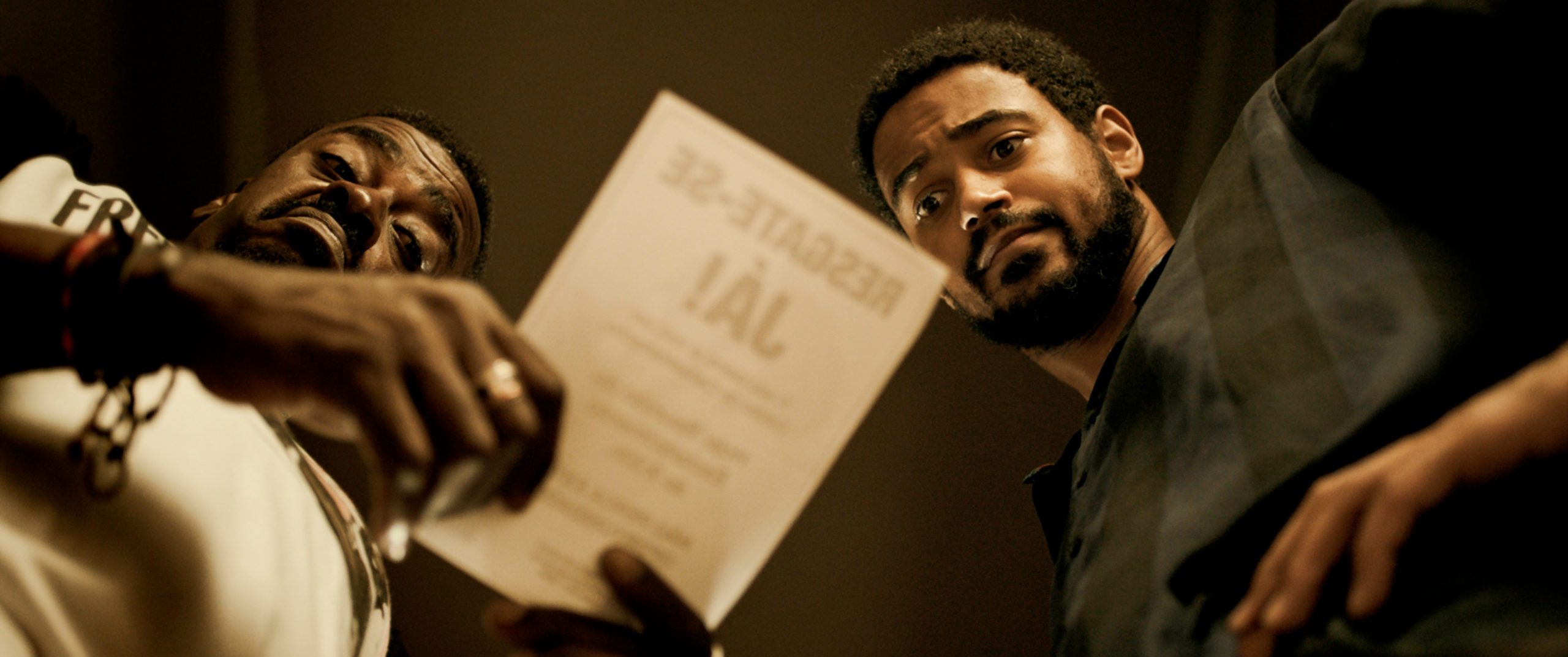
“I used to be black. Today, I’m high-melanin.”
Based on the Brazilian theatrical production “Namíbia, não!”, Executive Order is a film where the pageantry of theater meets grim reality. It is in essence the exploration of race and oppression in a thriller-style narrative.
Director Lázaro Ramos takes us to Brazil “sometime in the future” where we follow Antonio (Alfred Enoch), a young lawyer planning on suing the Brazillian government for the indemnification of all the descendants of African slaves in the country. Things take a major turn when the government declares that they would forcefully relocate those who were ‘high-melanin’ back to Africa in response. The situation escalates quickly as a race war erupts within Brazil due to this executive order, with the country descending into chaos.
The strength of the film lies in its dynamic cinematography and solid performances from the main cast. There are many wonderfully composed frames, creating a sense of dimensionality and emphasizing the movement of the cast on screen. Taís Araújo as Antonio’s wife Capitu was very compelling, as was Seu Jorge as their friend and cousin Andre. They all brought an emotional depth to their characters, and help to contextualize the nightmare they’ve been thrown into. With that being said, the pacing for the second half hindered the cast and the impact of their performances.

Throughout the film, there is a feeling that this film could have been better served as a miniseries. The characters and politics of this dystopian-adjacent Brazil are complex and rich in a way that makes the viewer crave more time and more exploration. Pacing issues aside, it’s still worth watching. The camera work really is stunning and supports the story and the actors, and the premise is an interesting thought experiment that is incredibly relevant to the political climate of today.